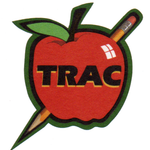
Inclusive Holiday Planning for Afterschool Programs: Keeping Celebrations Fun and Welcoming
The holiday season can bring excitement and joy to afterschool programs, but it can also present challenges. How do you create meaningful celebrations that are festive, inclusive, and fun without leaning on religious traditions? As a veteran afterschool program director, I’ve found that the best approach is to focus on universal themes—gratitude, giving, community, and cultural awareness—so every child and family feels welcome.
Why Inclusive Holiday Planning Matters
Afterschool programs serve diverse groups of students. Some families celebrate religious holidays, others celebrate cultural traditions, and some may not observe holidays at all. Planning activities that focus on inclusion ensures that every student feels respected. It also allows your program to model empathy, cultural appreciation, and community-building.
Do’s and Don’ts for Holiday Activities
Do:
-
Center activities on universal themes like kindness, gratitude, or the winter season.
-
Offer crafts, games, and projects that celebrate community and creativity.
-
Ask families for input about their favorite traditions (without making it religious).
-
Use the holidays as a time for giving back—service projects, donation drives, or thank-you notes.
Don’t:
-
Focus activities around one specific holiday or religious observance.
-
Assume all families celebrate the same way—or celebrate at all.
-
Use decorations or language that may unintentionally exclude certain groups.
-
Forget to check your grant guidelines; some funders prohibit religious programming.
Best Practices for Inclusive Celebrations
Choose themes that everyone can connect with, such as “Winter Around the World,” “Acts of Kindness Month,” or “Celebrating Community.” Plan enrichment activities like multicultural storytelling, seasonal STEM projects, or gratitude journals. Keep communication with families clear so they know your program is focused on inclusivity and respect for all.
Creative Ideas for Non-Religious Holiday Fun
-
Winter Carnival: Games, hot chocolate, and winter-themed crafts.
-
Kindness Challenge: Daily acts of kindness with recognition for students who go above and beyond.
-
Giving Back Projects: Create cards for seniors, assemble care kits, or organize a food drive.
-
Cultural Showcase: Invite students to share food, clothing, music, or stories from their background (without focusing on religious rituals).
Always Keep Grant Requirements in Mind
Some grants have strict guidelines about non-religious programming. Be sure your holiday activities align with these requirements and that staff understand the boundaries. Document your activities and communication with families in case of compliance reviews.
Suggested Discussion Questions for Students
To spark reflection and inclusion, try questions like:
-
What’s one way you like to show kindness during the winter season?
-
What are some traditions your family has that make this time of year special?
-
How can we celebrate together as a program, even if we all do different things at home?
-
What’s one thing you’re grateful for this year?
-
How can we use this season to help others in our community?
Building Joyful, Inclusive Traditions
Holiday programming doesn’t need to be religious to be meaningful. By focusing on themes like kindness, gratitude, and community, you’ll create memories that every child can enjoy. An inclusive approach allows students to feel seen, respected, and celebrated—while keeping your program compliant and welcoming to all families.
Final Thought
The holiday season is about connection. By designing celebrations that highlight community, culture, and compassion, your afterschool program can create a joyful environment where every child feels included. Inclusivity is more than just a program choice—it’s a message to families that your afterschool program is a safe, respectful space for everyone.
